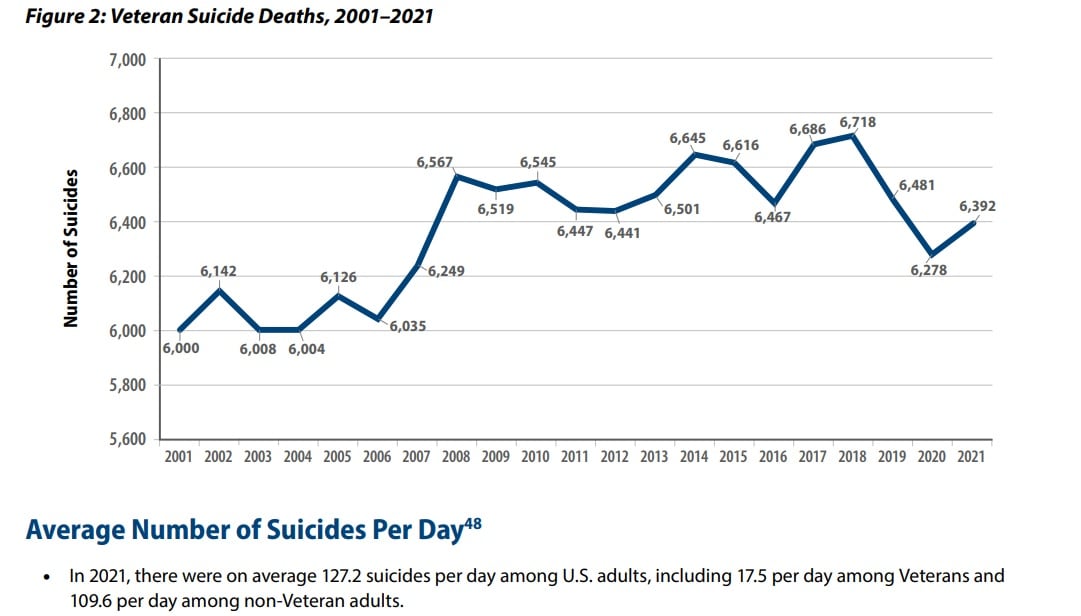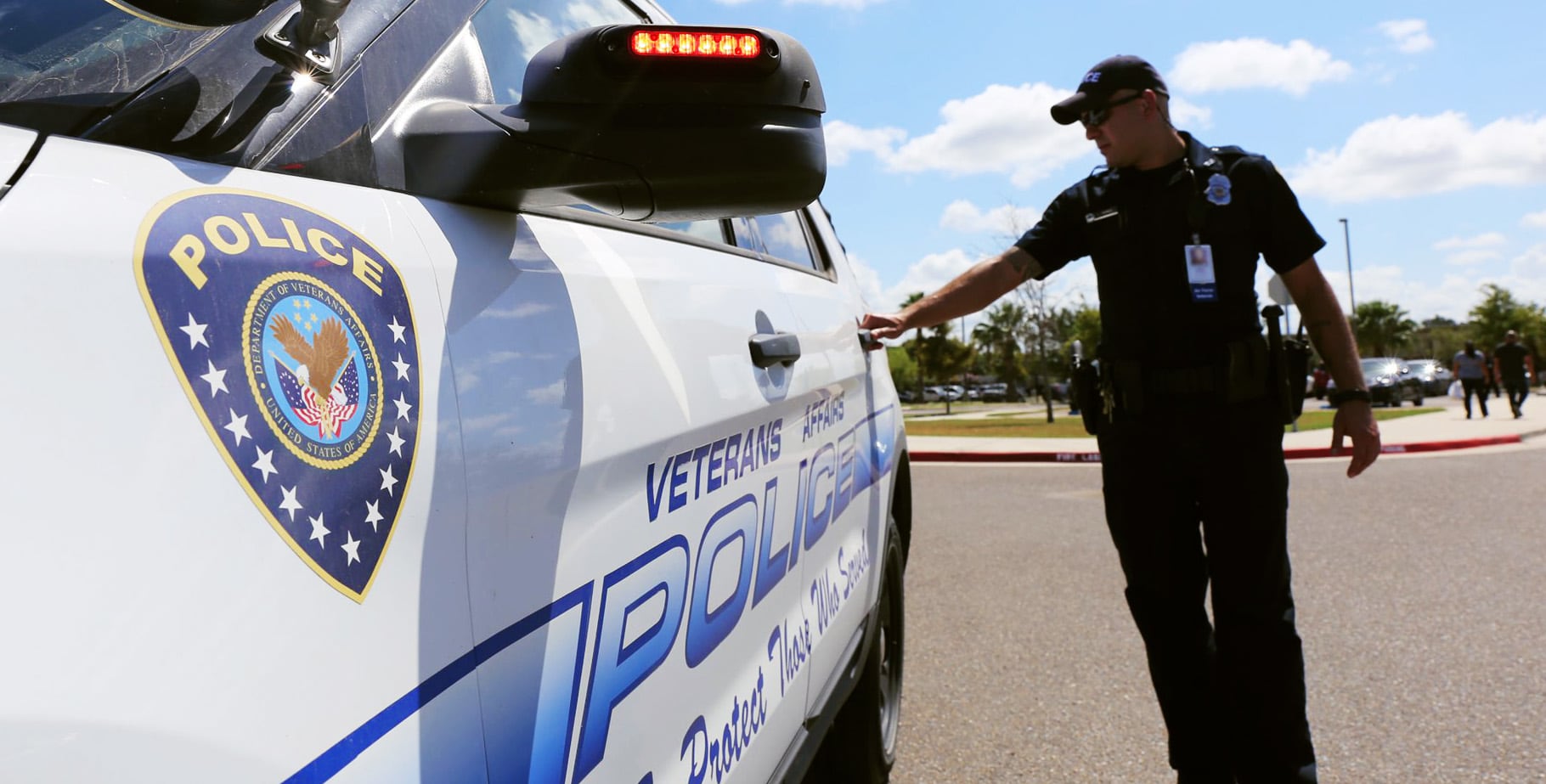Fewer than one-third of Veterans Affairs police officers completed their annual suicide prevention training last year, leaving thousands of law enforcement personnel underprepared to handle mental health crisis situations on department campuses, according to a report from department whistleblowers released Wednesday.
VA leaders said they are looking into reports of the training shortfalls, which were brought to light by Senate Veterans Affairs Committee ranking member Jerry Moran, R-Kansas.
In a statement, department press secretary Terrence Hayes said officials are focused on “ensuring our employees at all levels, including police officers, have the robust training required to intervene and protect veterans during a crisis.”
RELATED

But Moran called the delays in training unacceptable, given the importance of first-responders’ role in helping unstable veterans.
“This is wholly unacceptable and I fear it is our veterans and VA’s workforce who are paying the price,” he said in a letter to VA Secretary Denis McDonough released Wednesday.
“VA’s own police force is not trained in de-escalation skills and suicide prevention, as required by law. There is no excuse for VA not taking all the steps the department can — much less the steps that Congress requires — to prevent the unnecessary loss of life.”
In 2020, Congress mandated that VA provide police officers with annual training on how to prevent suicide through crisis intervention and de-escalation skills. The move came amid a small but growing number of veteran suicides on department medical center campuses, just a short distance away from potentially life-saving help.
But Moran’s office said VA officials reported that from January 2023 to March 2024, only 1,297 out of 4,505 armed VA police officers — about 29% — completed that required training. In his letter, Moran asked for the reasons behind that low competition rate and requested “a plan to guarantee the department’s compliance going forward.”
VA officials did not confirm or refute those figures.
Suicide prevention has been the department’s top health care priority in recent years, but efforts on the issue have shown mixed results.
About 6,400 veterans died by suicide in 2021, the most recent year for which data is available. That translates to about 17.5 veteran deaths per day. Suicides among veterans were up 1.8% from 2020 to 2021, after totals had dropped each of the two prior years.
Veterans in need of emergency counseling can reach the Veterans Crisis Line by dialing 988 and selecting option 1 after connecting to reach a VA staffer. In addition, veterans, troops or their family members can also text 838255 for help, or visit VeteransCrisisLine.net for assistance.
Leo covers Congress, Veterans Affairs and the White House for Military Times. He has covered Washington, D.C. since 2004, focusing on military personnel and veterans policies. His work has earned numerous honors, including a 2009 Polk award, a 2010 National Headliner Award, the IAVA Leadership in Journalism award and the VFW News Media award.





